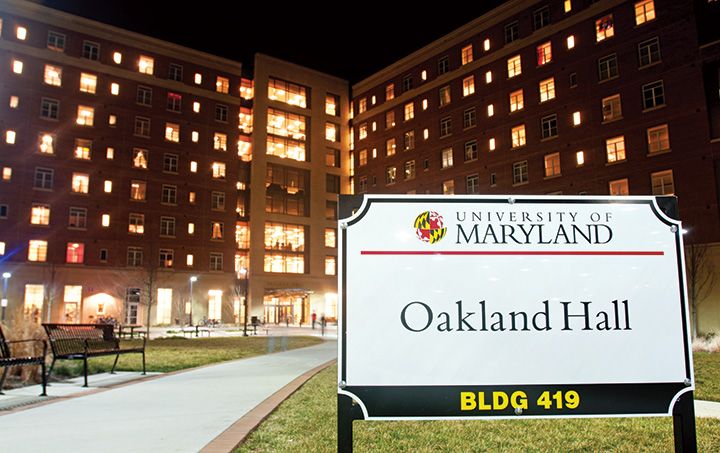Korie Broadwater-Allen, a multicultural advocate in the University of Maryland’s South Campus Commons, aimed to host events last semester to promote diversity. But only two to three residents showed up to each one.
This semester — the second for the program, started by the Department of Resident Life to promote inclusion on the campus — Broadwater-Allen and fellow advocates hope to raise awareness for the resources they offer residents.
Starting in the fall 2018 semester, as a pilot program, the department placed three multicultural advocates in South Campus Commons 1 and 2, Oakland Hall and Easton Hall. There, they host events, hold office hours and train resident advisers on how to facilitate conversations between their residents.
Nikita Kimani, an advocate in Oakland Hall, said the program is still very much in its beginning stages, and will continue to evolve this semester.
[Read more: After waiting months for external diversity review, UMD activists say they’re unsatisfied]
“We’re the first people to do it,” said Kimani, a junior psychology major. “When you first start, it’s kind of like, ‘What exactly are we trying to gain from this, what is our goal?’”
Last semester, Kimani and other advocates held a series of events and training sessions, including a two-hour program on diversity and inclusion for all resident advisors on the campus, as well as a handful of teaching assistants.
While Kimani said more Oakland residents are starting to become familiar with her position, others are still in the dark.
Imran Khawaja, who lives in Oakland Hall, is one such resident. While he hadn’t heard of Kimani’s role, he said he hopes the program gains traction.
“Getting more diversity is always a good thing,” the sophomore aerospace engineering major said. “Different viewpoints, different vantage points, different ideas being thrown around encourages conversation, and it encourages everyone working together.”
[Read more: UMD’s black freshman enrollment is at its lowest level in decades]
Khawaja suggested Kimani and other advocates could send emails around to residents of their buildings, to call more attention to the resources they offer.
Kimani said the MAs plan to spread awareness about the program by talking with residents, hosting more engaging informational activities and marketing events more in general.
Nicole Mehta, the department’s program director for diversity and inclusion, said she thinks the program has been successful for its first year, and MAs have found “innovative ways” to breach controversial topics students want to hear about.
“You can see growth, and part of that is residents beginning to recognize the position as a multicultural advocate and that they do programming,” Mehta said.
She also said at events near the end of the semester, the MAs were getting 20-25 students attending, and Resident Life still plans on expanding the program.
“We’ve had RAs in different communities that don’t have an MA ask about them, and we’d like for it to be something that every residence hall community has access to,” Mehta said.
Sophomore criminology and criminal justice major Andrew Poppel, who lives in Easton Hall, saw signs advertising events hosted by the multicultural advocates last semester, but didn’t attend any of them. When students head back to their dorms after class, they’re “zoned out,” Poppel said, and just want to study or sleep.
“If [the MAs] can get their message across to people, that’d be great, I just don’t know how easy that would be when people have so much on their plate already,” Poppel said.
Kimani also plans to spread the word that MAs are open to taking requests from students about topics they’d like to discuss with their neighbors. Moving forward, Kimani said she’s optimistic about how the work of MAs will evolve in the coming months.
“There’s more of a sense of ‘Okay, we have a feel of what’s going on in this position’ so we can cater more to what residents want to see in the next semester,” she said.



